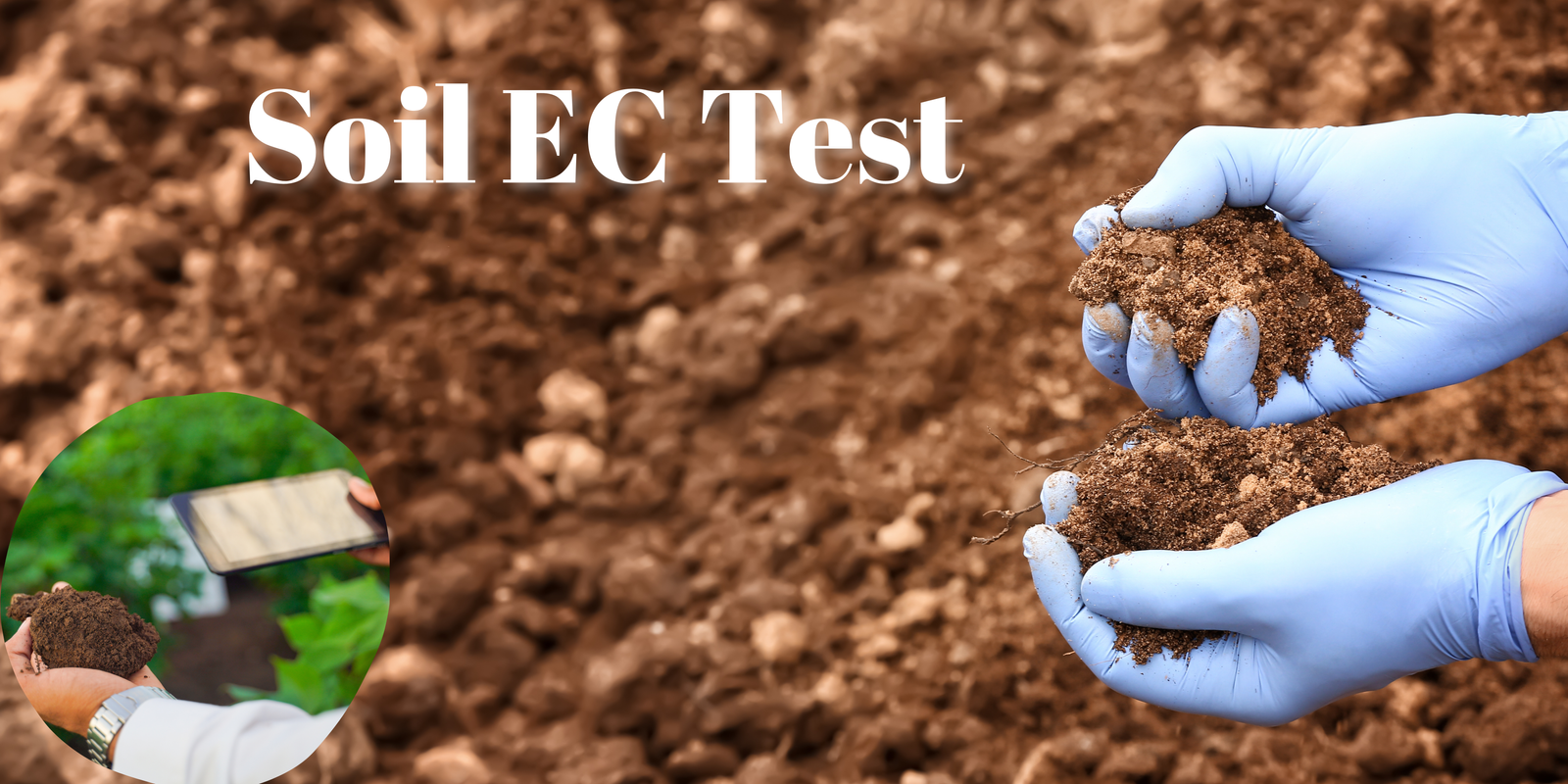Soil Testing
Soil EC Testing: A Smart Move for Farmers
Soil EC (electrical conductivity) testing is a valuable tool for Indian farmers because it provides information about the salt content and soil fertility of their land. This knowledge can then be used to make informed decisions about irrigation, fertilization, and crop selection, ultimately leading to increased crop yields and improved crop quality.
One of the main benefits of soil EC testing is that it helps determine soil salinity. High salt levels can inhibit the uptake of water and nutrients by plants, causing reduced crop yields and poor quality. Identifying salinity through EC testing allows farmers to adjust their irrigation and fertilization strategies. EC testing also helps identify soil fertility issues, guiding farmers to make precise, effective input decisions for healthier and more productive crops.

Key Benefits
- Indicates overall soil fertility based on soluble salts and nutrients.
- Helps choose the right type and amount of fertilizers for improved crop quality.
- Assists in optimizing irrigation schedules based on salt levels in the soil.
- Supports strategic crop planning and rotation based on EC levels.
- Promotes sustainable practices by preventing over-irrigation or nutrient leaching.
Smarter Farming with Soil EC Testing
Soil EC (Electrical Conductivity) testing helps Indian farmers monitor salt content and soil fertility in real-time. It improves decision-making for irrigation, fertilization, and crop planning.
- Detects soil salinity and prevents salt stress
- Optimizes irrigation frequency
- Improves crop selection based on salinity
- Tracks soil changes across seasons
- Boosts yield & reduces fertilizer waste

